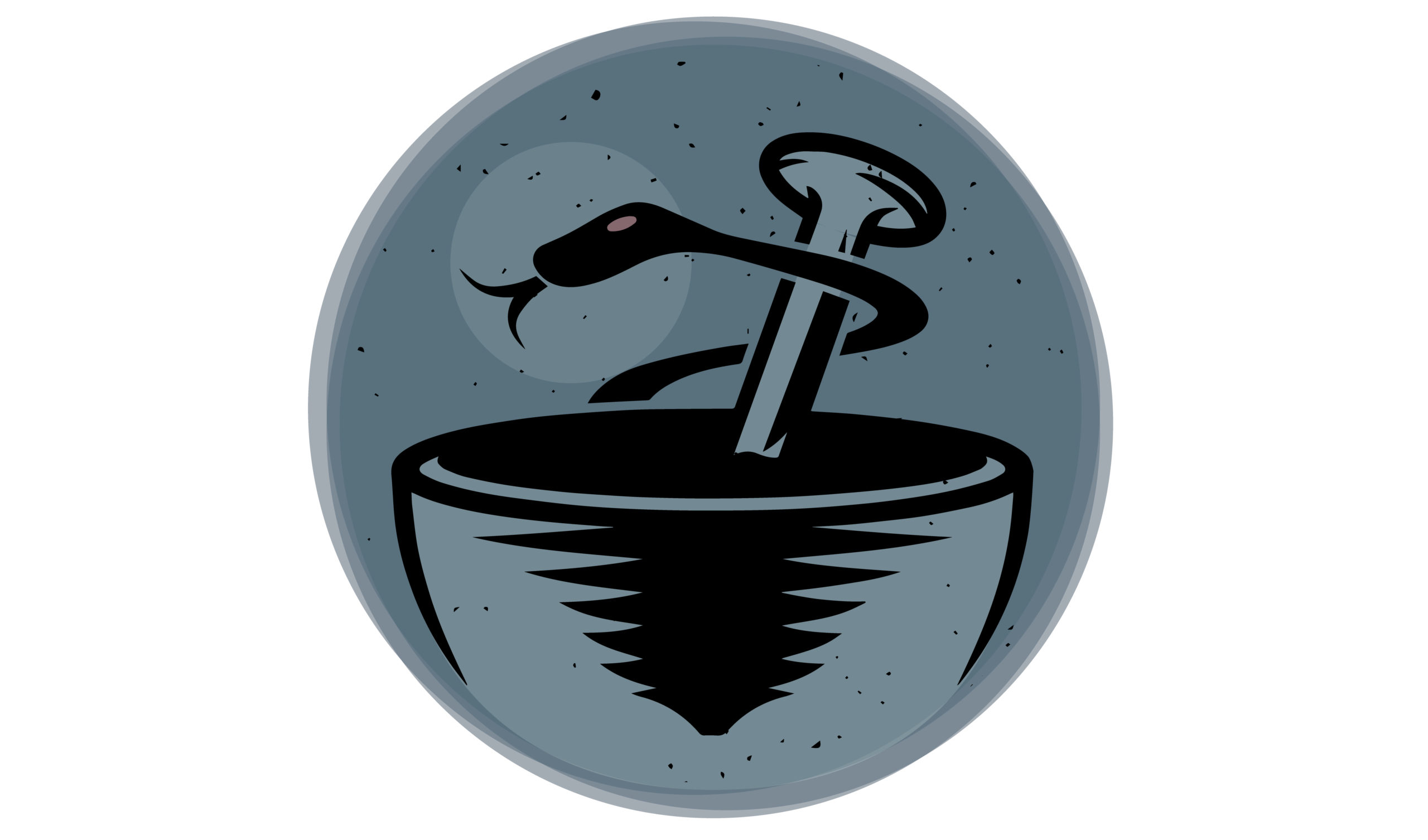The first time I met Dr. Sinan Hadi was May 13, 2015. I was 20 years old. I had gone into the pharmacy in my home town of Gibbons, Alta. with prescriptions for medications that I had used before. I dropped my prescriptions off, and when I returned to pick them up Dr. Hadi informed me that he would like to meet privately in the office to the side of the main counter to discuss my medications.

Once in the office, I explained to him that I had been on all of these medications before and wasn’t sure why this was necessary. He replied that he just wanted to make sure I understood how to take these medications properly and how they might interact with one another. He then explained to me that these particular prescriptions would not interact with each other, outlined the potential side effects, and encouraged me to return to meet with him.
He informed me that if these medications were not working for me he could write me a different prescription, and said that often general physicians aren’t as up to date on their knowledge of basic drug products as pharmacists. I said that while I appreciated his offer, I would rather stick with my own doctor, who had been my general physician for more than 10 years. Then I left.
Objectively, this encounter was innocuous. Nothing inappropriate happened. But I left feeling uncomfortable. I started to avoid going into the pharmacy when I thought that Dr. Hadi would be in. I managed to avoid him for almost a year.
The next time I interacted with Dr. Hadi, I walked into the pharmacy and waited in the drop-off line. He was at the counter. I walked up prepared to tell him my name and which prescription I needed refilled. He smiled at me and said, “Hey! It’s Marina Shenfield right?”
My blood ran cold and I stiffened as I told him that was me, and which prescription I would like to refill.
Our first interaction had left me feeling uneasy. The second interaction set off alarms. This man, who interacted with dozens of patients every single day remembered my full name a year after the last — and only — time he had seen me. Following this second encounter, I went home and told my family about both instances and how uncomfortable they had made me.
I started to call the pharmacy to find out which pharmacist was in before I would go. If Dr. Hadi was in, I would wait until the next day and then call again.
Months after this, my dad went into the pharmacy. Dr. Hadi — recognizing his last name — asked if he was my father.
Eventually I started to see Dr. Hadi less and less. Even though I was still calling the pharmacy to see who was in, if he and the other pharmacist were both in, I simply asked to see the other pharmacist. In the spring of 2018, I stopped seeing him altogether. It was my assumption he had moved away or found a job in Edmonton somewhere.
On Aug. 1, 2018, I saw Dr. Hadi’s face again. Except this time it was his mugshot posted all over social media. The Edmonton Police Service (EPS) had issued an assist to locate for Sinan Hadi. He had been convicted of unlawful confinement and the sexual assault of a minor.
On Sept. 24, 2016, Hadi was involved in collision with a teenage girl on the west end of Edmonton. He convinced her to get into his car. He drove her to multiple locations and sexually assaulted her. The next day police arrested and charged Hadi.
After his conviction, he failed to hand in his travel documents or show up for his sentencing hearing. Dr. Hadi was on the lam.
The first time I read the assist to locate report I was confused. I had seen Dr. Hadi in the pharmacy in Gibbons, interacting with patients, since the time of his arrest. I later found out that Hadi had continued to work at the Gibbons Guardian Pharmacy for a year and a half after his arrest. His last day working there was March 15, 2018. He was convicted of the assault and unlawful confinement on March 16, 2018.
Dr. Hadi’s unprofessional conduct hearing with the Alberta College of Pharmacy (ACP) — the professional regulatory organization in charge of overseeing and regulating pharmacy professionals in Alberta — took place on Sept. 19, 2018.
According to statements made by James Krempien — the ACP complaints director — during the hearing, the ACP did not find out about the charges against Hadi until after he had already been convicted. He says the ACP found out about the conviction when the victim’s father filed a complaint following the criminal trial.
After finding out about the conviction, the ACP did not immediately inform Hadi’s employers at Gibbons Guardian Pharmacy. During the hearing, Krempien disclosed it wasn’t until over a month after Hadi’s conviction that Gibbons Guardian Pharmacy found out about his conduct.
According to other hearing decision reports put out by the ACP on cases of unprofessional conduct complaints with circumstances similar to Hadi’s case, the ACP was often informed of criminal proceedings or possible breaches of ethics and conduct by EPS. However, in Hadi’s case, neither the ACP, nor representatives from the EPS would confirm whether or not EPS had informed the ACP of Hadi’s arrest, charges, or subsequent conviction at the time that they occured.
Krempien’s investigation — as he relayed during Hadi’s unprofessional conduct hearing — found that on March 21, 2018, Hadi sent his employers a text informing them that he would not be returning to work, and asked that they prepare his final paycheck. When he failed to come pick it up, one of Hadi’s employers contacted the ACP on April 24, 2018, asking about a forwarding address for his final paycheck. It was at this time that the ACP informed Hadi’s former employers of his conviction.
During the time that lapsed between his arrest and his conviction, Hadi had to complete an annual renewal of his license with the ACP.
Barry Strader, communications director of the ACP explained to me in an email, “Each year when pharmacists renew their registration with the college, they sign a professional declaration which reaffirms that they are required to comply with the Code of Ethics. The professional declaration specifically states Principle 11, Section 4 as a requirement within the code.”
The ACP Code of Ethics Principle 11, Section 4, expects pharmacy professionals to, “promptly declare to appropriate individuals any circumstances that may call into question (their) fitness to practice or bring the pharmacy profession into disrepute, including ill health that impairs (their) ability to practice, criminal convictions and findings by other regulatory bodies or organizations.”
The ACP expected Hadi to disclose his own criminal charges. He did not.
According to Strader, the onus has always been on the pharmacist to disclose this information. For this reason, the college only requires a criminal background check upon initial registration, and not at regular intervals subsequently. Strader says that this practice is “consistent with those of other health professions in Alberta.”
This seems to be the case across most regulated health care professions in Alberta. However, other provincial Colleges of Pharmacy, such as the British Columbia College of Pharmacists, require recurrent criminal background checks every five years. Some provincial Colleges of Pharmacy do not require a criminal background check at all, even upon initial registration.
“As health professionals, pharmacists and pharmacy technicians have professional obligations to their patients, their colleagues,
and their profession to report anything, including a criminal charge or conviction, that would call into question their fitness to practise or bring the pharmacy profession into disrepute.”
— Barry Strader
While a five year recurrent criminal background check could still be considered a relatively lackadaisical policy, and may not have helped regulation in Hadi’s case, the British Columbia College of Pharmacy has put a check and balance in place to regulate its members.
The current mission statement of the ACP reads, “The Alberta College of Pharmacy governs pharmacists, pharmacy technicians, and pharmacies in Alberta to support and protect the public’s health and well-being. We take responsibility for pharmacy practice by setting and enforcing high standards of competence and ethical conduct.”
While they may be setting high standards of competence and ethical conduct, Hadi’s case brings into question the effectiveness of the College in enforcing those standards. It is true that they hold hearings for professionals that are accused of unprofessional conduct.
However, under their current structure, Hadi was allowed to continue to practice for a year and a half while charged with the unlawful confinement and sexual assault of a minor, with no conditions or sanctions applied to his license.
He had access to hundreds of individuals’ personal records and information. He had the authority to meet privately with patients, including patients that are in the same age range and demographic as the young girl he assaulted. He had the freedom to do these things because the Alberta College of Pharmacy does not currently have a reliable way of regulating whether or not a pharmacist’s annual disclosure of information is complete or true.
Rather than taking responsibility for these standards, such as their mission statement suggests, the ACP has placed the onus on the pharmacists to disclose whether or not they are meeting these standards. Placing the responsibility on the individual pharmacists and pharmacy technicians to disclose criminal activity or charges is not only an unreliable practice, but also an unsafe one.
“As health professionals, pharmacists and pharmacy technicians have professional obligations to their patients, their colleagues, and their profession to report anything, including a criminal charge or conviction, that would call into question their fitness to practise or bring the pharmacy profession into disrepute,” explains Strader.
But, can it be reasonably assumed that an individual willing to violate the Criminal Code by sexually assaulting a minor will somehow hold their obligation to their profession in higher regard than the law?
Strader says, “ACP more than meets our responsibilities as indicated in the legislation.”
And while it is true that the Alberta Health Professions Act does not require the professional regulatory bodies of each health profession to seek recurrent criminal background checks, the basic criteria for these bodies that is outlined within the act, places this practice into question.
Section 3(1) of the Health Professions act describes the role and responsibilities of any Health Professions College.
“3(1) A college
(a) must carry out its activities and govern its regulated members in a manner that protects and serves the public interest,
(b) must provide direction to and regulate the practice of the regulated profession by its regulated members,
(c) must establish, maintain and enforce standards for registration and of continuing competence and standards of practice of the regulated profession,
(d) must establish, maintain and enforce a code of ethics,
(e) carry on the activities of the college and perform other duties and functions by the exercise of the powers conferred by this Act, and
(f) may approve programs of study and education courses for the purposes of registration requirements.”
Hadi’s case brings to mind many questions about the role and responsibilities of any Health Professions College as outlined in the Health Professions Act.
Is it not in the best interest of the public to have access to medical professionals that are subject to regular criminal background checks? Shouldn’t everyone have the right to be seen by medical professionals that they know have been verified as safe to serve the public through recurrent background checks by their regulatory bodies?
Is requiring professionals to self disclose criminal charges that could damage their career and employment, a reliable way to regulate the practice of a medical discipline? Should these regulatory bodies, such as the Alberta College of Pharmacy, be responsible for verifying the accuracy of these disclosures?
Is it enough for the regulatory bodies to enforce the standards for registration and practice once they find out about criminal charges or convictions, such as in Hadi’s case, from the pharmacist or a third party?
And lastly, what motivation is there for an individual to self disclose information which could have extremely negative effects on their career?
Recently, the Legislative Assembly of Alberta passed Bill 21, an act to protect patients. The bill outlines many amendments to the Health Professions Act dealing with sexual misconduct of medical professionals.
One of these amendments is that all medical professionals that are registering to practice in Alberta will be required to submit a current (within the last six months) criminal background check at the time of initial registration. No amendments have been made in regards to recurrent criminal background checks once a medical professional is already registered.
Strader states that “ACP is constantly reviewing its policies so that we may better protect the public’s safety, health, and wellbeing.”
However, there is not yet word on whether or not the ACP is reviewing its current policies to better safeguard against these types of situations in the future.
As of the date this article was sent to print, the Alberta College of Pharmacy had not released the findings of Hadi’s unprofessional conduct hearing. Hadi is currently wanted on three Canada-wide warrants and his whereabouts remain unknown.
UPDATE: Since this publication went to print, the Alberta College of Pharmacy released their report on and findings during Hadi’s hearing on their website. They found his conduct unprofessional on the accounts of: his criminal charges and conviction, failing to inform his employer of these convictions, failing to inform the College of these convictions, and for failing to comply with the College investigator. The report states, “Mr. Hadi failed to demonstrate the ethical conduct and judgment expected of an Alberta pharmacist.” They have since cancelled his registration with the Alberta College of Pharmacy.
Graphics by Milo Knauer. Photography supplied.





0 Comments